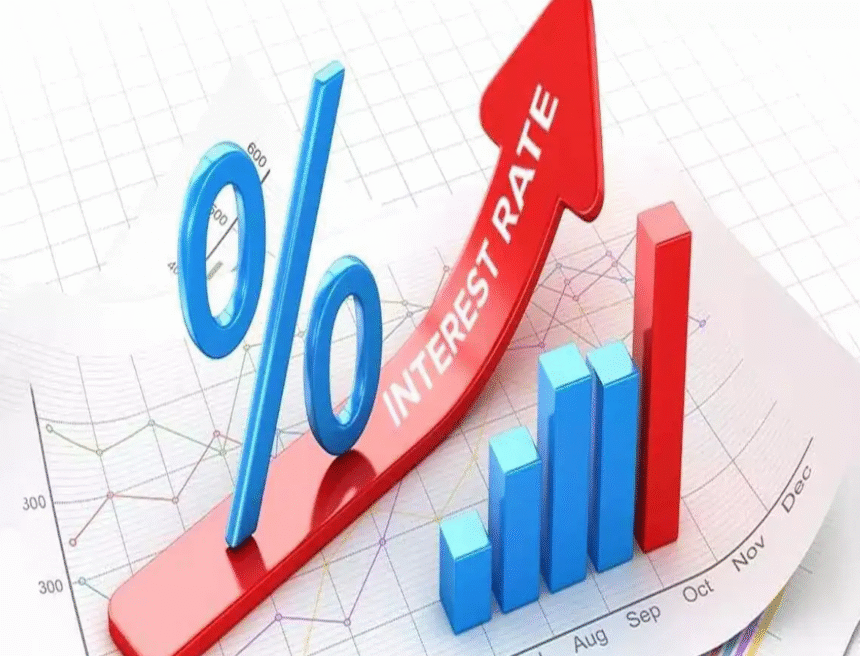Interest rates play a critical role in shaping the housing market. They influence how much buyers can afford, the pace of sales, and even home prices. Whether you’re a buyer, seller, or investor, understanding how interest rates affect real estate can help you make smarter decisions. In recent years, rate fluctuations have had a dramatic impact on buyer behavior, inventory levels, and market competitiveness. By knowing the connection between interest rates and housing trends, you can better position yourself for success in any market cycle.
- The Basics of Interest Rates
- How Interest Rates Impact Buyers
- How Interest Rates Impact Sellers
- The Relationship Between Interest Rates and Home Prices
- Interest Rates and Housing Inventory
- The Impact on Refinancing
- The Role of Adjustable-Rate Mortgages (ARMs)
- Market Sentiment and Buyer Psychology
- Long-Term vs. Short-Term Effects
- Strategies for Buyers in Changing Rate Environments
- Strategies for Sellers in Changing Rate Environments
- Final Thoughts
The Basics of Interest Rates
Interest rates are the cost of borrowing money. In the housing market, they determine how much buyers will pay each month for their mortgage. Even a small change in rates can significantly impact affordability. For example, a 1% increase in the mortgage rate can raise monthly payments by hundreds of dollars, which might push some buyers out of the market altogether. The Federal Reserve doesn’t directly set mortgage rates, but its monetary policy decisions strongly influence them, along with broader economic conditions.
How Interest Rates Impact Buyers
When interest rates are low, borrowing costs decrease, allowing buyers to afford more expensive homes or enjoy lower monthly payments. This often stimulates demand, as more people are able to qualify for mortgages and feel confident making offers. Low rates can lead to bidding wars, faster sales, and rising home prices. On the other hand, when interest rates rise, borrowing becomes more expensive. Buyers may need to lower their budget, expand their search to less expensive areas, or delay purchasing altogether. This reduction in demand can slow the pace of sales and put downward pressure on prices over time.
How Interest Rates Impact Sellers
For sellers, low interest rates can be a significant advantage. More buyers in the market means greater competition for available homes, often resulting in quicker sales and higher sale prices. Rising rates, however, can present challenges. If rates increase sharply, the pool of qualified buyers shrinks, and properties may take longer to sell. In these conditions, sellers might need to adjust pricing strategies, offer incentives, or invest more in marketing to attract buyers. In some cases, sellers who need to sell my house fast might consider alternative selling methods, such as working with cash home buyers who aren’t impacted by mortgage rates.
The Relationship Between Interest Rates and Home Prices
While there isn’t a perfect one-to-one relationship between interest rates and home prices, the two are closely linked through buyer demand. Low rates tend to push prices higher as more buyers compete for limited inventory. Rising rates, on the other hand, can slow price growth or even lead to price declines if demand drops significantly. However, prices are also influenced by other factors, including local supply and demand, economic growth, and housing inventory levels. This means that in certain high-demand markets, prices can remain strong even as rates climb.
Interest Rates and Housing Inventory
Low interest rates can actually reduce housing inventory in some situations. Homeowners with very low mortgage rates may be reluctant to sell and take on a new loan at a higher rate, even if rates have only increased slightly. This “rate lock-in” effect keeps inventory low, which can further drive up prices. Conversely, when rates rise and demand slows, more homes may stay on the market longer, giving buyers more choices and negotiating power.
The Impact on Refinancing
Interest rates also influence refinancing activity. When rates drop, many homeowners refinance to secure lower monthly payments or shorten their loan terms. This can put more disposable income into the economy and improve household financial stability. When rates rise, refinancing activity slows dramatically, which can impact consumer spending and the broader economy.
The Role of Adjustable-Rate Mortgages (ARMs)
In periods of high interest rates, some buyers turn to adjustable-rate mortgages to secure lower initial payments. While this can help buyers enter the market, it also carries risk. If rates increase when the loan adjusts, monthly payments can rise significantly. This can lead to affordability challenges and, in extreme cases, higher foreclosure rates. Fixed-rate mortgages, while potentially higher upfront, offer stability that many buyers prefer in uncertain rate environments.
Market Sentiment and Buyer Psychology
Interest rates also influence how buyers and sellers feel about the market. Even small changes can have an outsized psychological effect. When rates are dropping, buyers may feel a sense of urgency to purchase before rates climb again. When rates are rising, some buyers may rush to lock in a rate before it goes higher, while others may step back entirely. These shifts in sentiment can create short-term spikes or slowdowns in activity, independent of long-term trends.
Long-Term vs. Short-Term Effects
Short-term changes in interest rates can cause sudden shifts in housing market activity, but the long-term effects depend on broader economic conditions. For example, if rates rise due to strong economic growth, the housing market may remain healthy because incomes and employment are also improving. If rates rise due to inflationary concerns or economic uncertainty, demand may weaken more significantly.
Strategies for Buyers in Changing Rate Environments
Buyers can take several steps to navigate interest rate changes:
- Get pre-approved for a mortgage early and lock in rates when possible.
- Consider different loan types and terms to find the most affordable option.
- Expand the home search area to find better value.
- Increase down payments to reduce the amount borrowed and monthly costs.
Flexibility and preparation can help buyers remain competitive, even in a rising-rate environment.
Strategies for Sellers in Changing Rate Environments
Sellers can adapt to interest rate changes by:
- Pricing competitively to attract a larger pool of buyers.
- Offering concessions, such as paying points to buy down the buyer’s interest rate.
- Highlighting energy efficiency and low-maintenance features to offset higher borrowing costs.
- Being flexible with closing timelines to accommodate buyers’ financing needs.
Understanding buyer challenges can help sellers position their homes more effectively.
Final Thoughts
Interest rates are one of the most influential factors in the housing market, affecting affordability, demand, prices, and inventory. While you can’t control rate changes, you can control how you respond to them. By staying informed about market conditions, working with knowledgeable professionals, and adjusting strategies as needed, both buyers and sellers can make the most of any rate environment. Whether rates are high or low, preparation and adaptability are key to navigating the housing market successfully.













